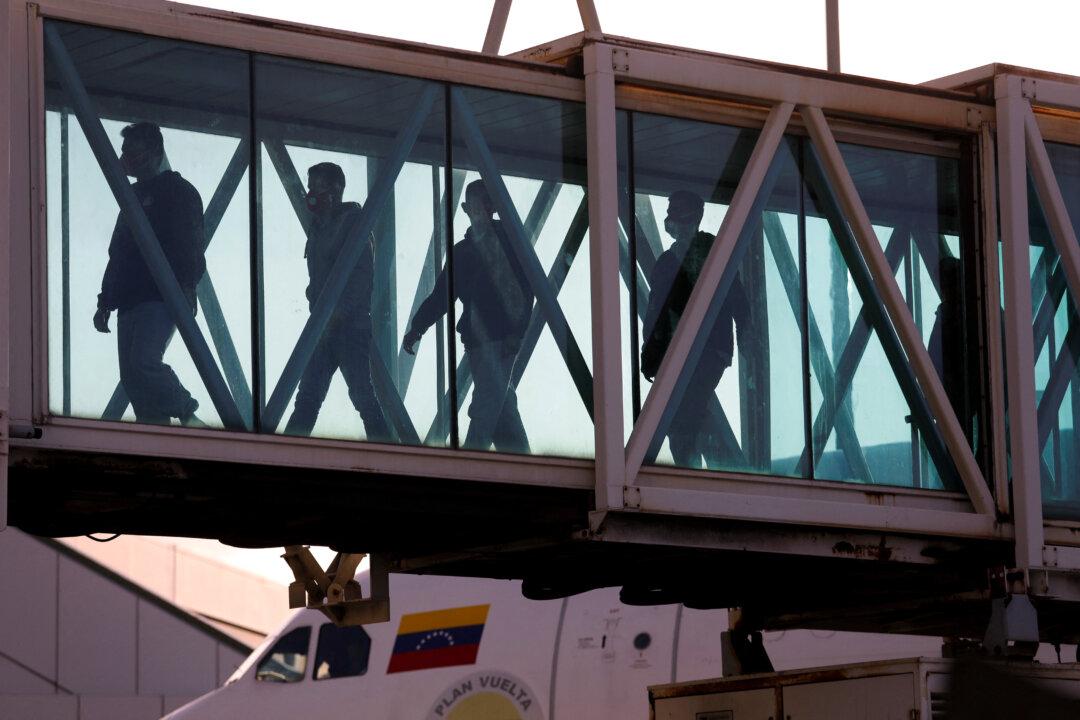Detainees must be warned in advance of their deportation, allowed to claim fear of torture, and given time to contest removal, the judge ruled.


A federal judge has blocked the Trump administration from deporting illegal immigrants to Libya or any other third country without first giving them notice and an opportunity to claim protection under U.S. law, after reports surfaced of an imminent military flight carrying detainees to the North African nation.
U.S. District Judge Brian Murphy, in a series of rulings issued on May 7 from the bench and in court filings, said that any effort to remove noncitizens without procedural safeguards would be a clear violation of an earlier injunction that he issued on April 18. “If there is any doubt—the Court sees none—the allegedly imminent removals, as reported by news agencies and as Plaintiffs seek to corroborate with class-member accounts and public information, would clearly violate this Court’s Order,” Murphy wrote.
Murphy’s April 18 order prohibits the Department of Homeland Security from carrying out so-called “third-country removals” unless detainees are first given written notice in a language they understand, a chance to request a reasonable fear screening, and at least 15 days to file a motion to reopen their immigration case if the screening is denied.
The judge’s emergency ruling on May 7 came hours after the plaintiffs in the class-action case filed a request for a temporary restraining order, citing news reports and attorney declarations indicating that DHS and possibly the Department of Defense (DOD) were preparing to deport several Laotian, Vietnamese, and Filipino nationals to Libya without those protections in place.
“This motion should not even be required as it blatantly defies this Court’s preliminary injunctions,” attorneys for the plaintiffs wrote, while describing Libya as a country “notorious for its human rights violations.”
In two electronic orders issued later on May 7, Murphy reinforced the scope of his prior injunction and indicated that deportations carried out in coordination with the DOD may also fall under the court’s scrutiny. He scheduled expedited discovery into the role of both the DHS and DOD in recent removals and requested a briefing on whether the Pentagon should be formally added to the case as a defendant.
In their emergency motion, attorneys for the plaintiffs cited a reported flight plan involving a U.S. Air Force C-17 departing from Kelly Field in Texas to Misrata Airport in Libya, along with accounts that ICE officers had allegedly instructed detainees to sign documents agreeing to removal to Libya or face what amounted to solitary confinement.
According to filings in the case, some plaintiffs had previously been granted protection from removal to their home countries under the Convention Against Torture but were later told they could be sent to third countries not included in their original orders.
A Justice Department spokesperson did not immediately return a request for comment.
The case comes amid the Trump administration’s broader effort to expand its deportation program and explore new destination countries for foreign nationals ordered removed from the United States.
President Donald Trump recently questioned whether individuals who entered the United States illegally are entitled to the same due process rights as citizens.
In an interview that aired Sunday on NBC’s Meet the Press, Trump said that such a requirement would mean “we’d have to have a million or two million or three million trials,” suggesting that a fast-tracking of deportations of proven illegal immigrants may be the most appropriate solution.
The president added that his administration’s lawyers “are going to obviously follow” U.S. Supreme Court rulings in this regard.
